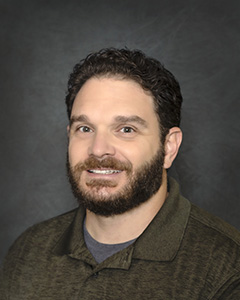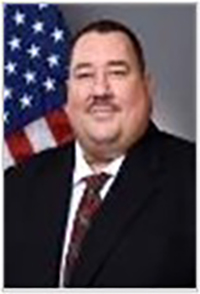
Moderator:
Rolf Ziesing is Vice President of Maritime Programs at General Atomics responsible for Ford-class carrier Electromagnetic Aircraft Launch Systems (EMALS) and Advanced Arresting Gear (AAG) programs, undersea domain programs, and a portfolio of advanced commercial products and systems supporting the defense and energy market.
Rolf began his professional career as an officer in the U.S. Navy assigned to Naval Reactors headquarters in Washington DC. After 12 years in the Materials Division where he was promoted to Branch Head for Welding, Nondestructive Testing and Quality, Rolf was assigned to Naval Reactors field office duty and received an appointment to the Senior Executive Service in the National Nuclear Security Administration (NNSA). Ziesing’s field assignments included oversight of the Bettis Atomic Power Laboratory as the NNSA Operations Manager at Bettis, oversight of the Naval Nuclear Propulsion Program industrial base as the Naval Sea Systems Command Technical Representative – Pittsburgh, and oversight of nuclear submarine construction and operations as the senior Naval Reactors Representative at Electric Boat Shipyard and the U.S. Naval Submarine Base in Groton, CT. In his last position, he oversaw and participated in “alpha” sea trials of the first VIRGINIA-class nuclear submarine (USS VIRGINIA) and the last SEAWOLF-class nuclear submarine (USS JIMMY CARTER).
Before coming to General Atomics, Ziesing was Vice President of National Security Programs and Vice President of Nuclear Equipment Manufacturing at BWX Technologies; and at Westinghouse Nuclear was Director of Quality, US/Asia Nuclear Fuel Operations, Director of US AP1000 Licensing, and Director of AP1000 Site Operations and Licensing at the Vogtle nuclear power generating station (Units 3&4).
Rolf is a Butte native and received his Bachelor of Science (with honors) in Metallurgical Engineering from the Montana College of Mineral Science and Technology. He successfully completed the Naval Reactors staff nuclear engineering course (masters equivalent) at the Bettis Reactor Engineering School and completed the Executive Course on Leading Strategic Growth from Columbia University Business School. Rolf is a recipient of the National Nuclear Security Administration Gold Medal for Distinguished Service and the Navy Superior Public Service Medal.
|

Jack Skinner
Dr. Jack L. Skinner is the Dean of the Lance College of Mines and Engineering at Montana Technological University.
Dr. Skinner graduated in 2000 from Montana Tech with a B.S. in General Engineering with a Mechanical Engineering Option. He went on to receive an M.S. degree in Mechanical Engineering from Washington State University and a Ph.D. in Mechanical Engineering from the University of California, Davis. Dr. Skinner worked as a graduate researcher at the Berkeley Sensor and Actuator Center (BSAC), Berkeley, California, during his time as a Ph.D. student. He worked at Sandia National Laboratories (SNL) for nearly 10 years, earning the rank of principal member of technical staff before becoming a faculty member at Montana Tech in 2012. While at SNL Dr. Skinner led multidisciplinary teams focused on addressing national security and defense issues with solutions provided by materials and devices enabled through engineering and science at the nanoscale.
During his time at Montana Tech, he has been honored with four Rose and Anna Busch Teacher of the Year awards, three merit awards for excellence in teaching, research, and service, two distinguished researcher awards, and an alumni recognition award at Montana Tech. Dr. Skinner founded the Department of Mechanical Engineering and created Montana Tech’s first cleanroom facility and continues to direct the Montana Tech Nanotechnology Laboratory. His research portfolio exceeds $14 million in funding, with 70 journal publications, 127 conference presentations, and 13 patents to his name. He serves as Associate Editor of MRS Advances and as Conference Chair and Chief Executive Officer for the 69th Electron, Ion and Photon Beam Technology and Nanofabrication Conference (EIPBN or 3-Beams), the world’s longest-running nanotechnology conference to be held in Denver in 2026. He is committed to ensuring Montana Tech provides excellent educational opportunities with strong industrial ties.
|

Craig M. Bleile is Director of Future Capabilities for Naval Undersea Warfare Center (NUWC) Keyport, WA leading numerous emerging technology projects.
Past tours included Office of Naval Research (ONR) Science Advisor for the Navy Warfare Development Command where he authored numerous advanced warfighting concepts. Prior to joining ONR, served at the Naval Information Warfare Center Pacific, with duties including project management and field engineering for numerous Foreign Military Sales installations throughout Asia and Africa. Much of Mr. Bleile’s early career was spent with the Naval Surface Warfare Center where his areas of expertise included Amphibious Warfare, Strike Warfare, Ship Self-Defense, and Joint Interoperability. During 2002-2003, Mr. Bleile was stationed in Bahrain serving as the US Navy Central Command, Fifth Fleet and US Marine Forces Central Command Science Advisor supporting Operation Enduring Freedom and Operation Iraqi Freedom.
Mr. Bleile received his Bachelor of Science in Electrical Engineering from Boston University and several degrees and certificates from the Naval Postgraduate School in Systems Engineering, Optical Sciences and Information Sciences. He is the recipient of the Wayne E. Meyer Award for Excellence in Systems Engineering.
|

Robert Smith, director of the Special Activities Office (SAO) at Idaho National Laboratory (INL), is driving high-impact technical solutions and leveraging key partnerships with private sector and government security stakeholders to keep our nation secure and competitive in an ever-changing and challenging geopolitical landscape. The Special Activities Office is a leader in technical expertise for the defense of irregular warfare and brings to bear the most effective capabilities needed to address the growing demands and threats inherent to modern, indirect warfare.
Rob manages programs at INL across diverse mission sets, supporting the energy sector, intelligence community (IC), DOE, DoD, and others. Prior to INL, Rob served as an operations officer at the Central Intelligence Agency (CIA) with years of field operations and covert action experience around the world, having spent most of his time in Eastern Europe, East Asia, and Africa. He has extensive experience with energy, cybersecurity, nonproliferation, counterintelligence, counterterrorism, and emerging technologies. He has sector-specific experience regarding insider threats and tangible vulnerabilities to US critical functions. Rob holds degrees from Brigham Young University and Boise State University. Originally from Salt Lake City, Utah and having lived overseas and throughout the United States, he now resides in Idaho Falls, Idaho with his wife and six children.
|